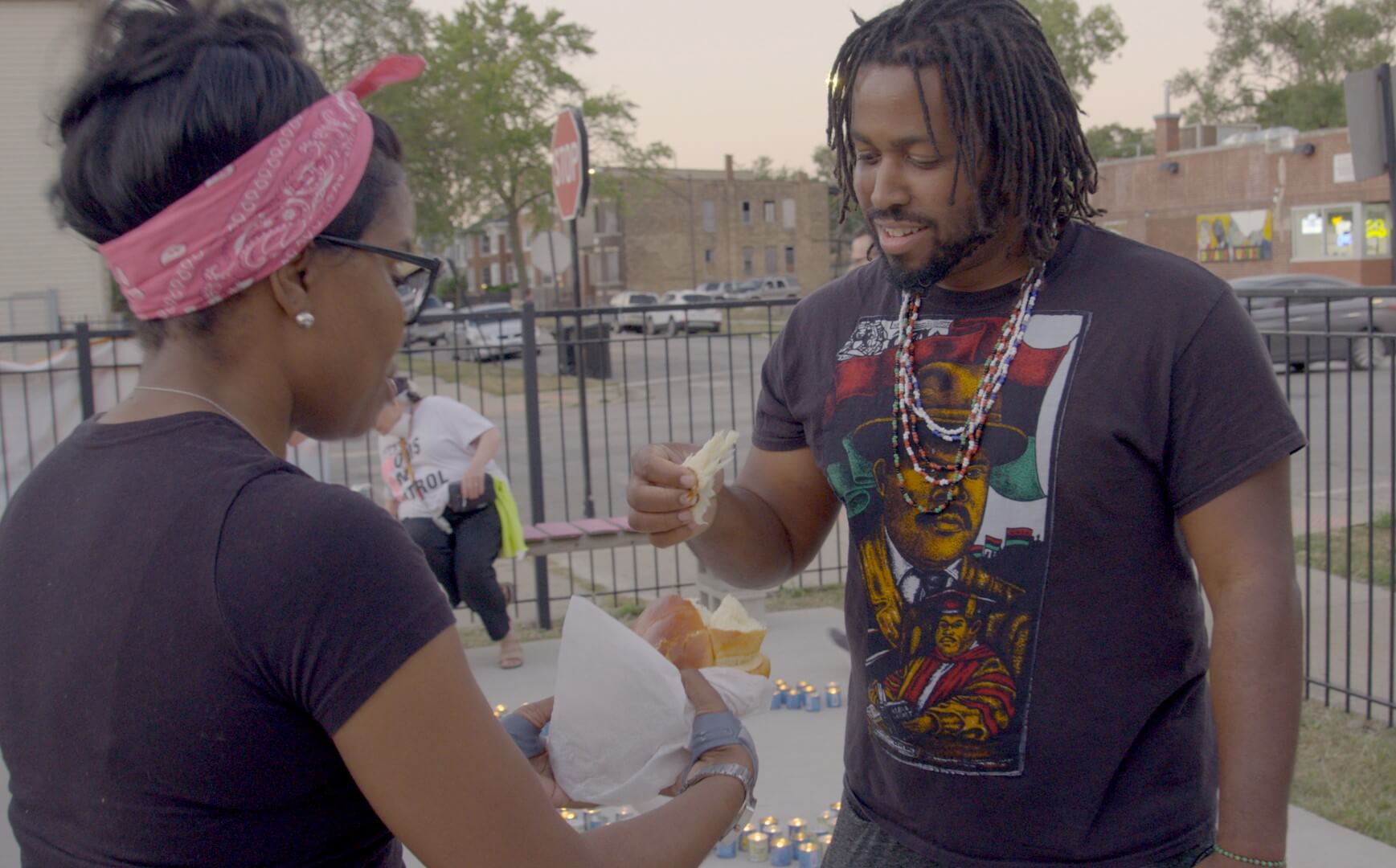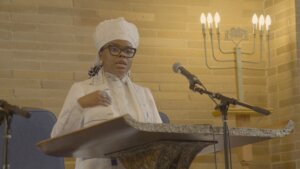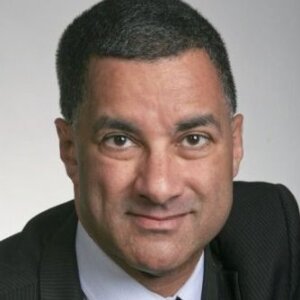For ‘Rabbi On The Block,’ the street is her pulpit
A second documentary follows antiviolence activist Tamar Manasseh

Graphic by Angelie Zaslavsky
Three years ago, the feature-length documentary “They Ain’t Ready For Me” told the story of Chicago anti-violence advocate Tamar Manasseh.
At an hour and 29 minutes, it apparently wasn’t long enough. This summer, that film’s director, Brad Rothschild, featured her in a second bio-doc, “Rabbi On The Block.” Are they headed to a trilogy or reality series?
“Yes to both. While we were making the first film, it became clear we still had more to say,” Rothschild said in a joint interview with Manasseh.
One area needing elaboration, both filmmaker and subject agreed, was about her Jewish identity.
“When we were doing Q&As at screenings, no matter how many times we said, “Please don’t ask Tamar about how it is that she’s Jewish,” people were still curious. We tried to explain it in the first film but we didn’t explain it well enough apparently.”
The explanation, which Manasseh repeats onscreen and to anyone within earshot, is that she’s Jewish, period. A member since childhood of Chicago’s mostly Black Beth Shalom B’nai Zaken Ethiopian Hebrew Congregation and a graduate of a Conservative Jewish day school, she was ordained in 2021 the first female rabbi under the auspices of the International Israelite Board of Rabbis.

To me, she added:
“I’m Jewish. I don’t have to pull out my mikvah certificate for anyone who asks.”
What’s more important than arguments over who is a Jew, she says, is how you manifest your Judaism. For her, it’s bringing it to the streets of Chicago’s predominantly Black South and West sides. But rather than Jewish-flavored proselytizing in hopes of saving souls, it’s to save lives.
In 2015, Manasseh planted herself in a lawn chair at the corner of 75th and Stewart where a mother was murdered, leading to her founding of MASK — Mothers Against Senseless Killings (now with Men added to the acronym). It’s grown into a community resource, with cookouts and events offering various social services, staffed by volunteers including many white Jews from the suburbs. Accolades nationwide have given her a platform to speak out against gun violence.
While not missionary, Manasseh’s work does include Jewish elements, including a yearly Yom Kippur service on the corner with hundreds of yahrzeit candles for Chicagoan killed by guns and other acts of violence. On Christmas morning, she leads a mostly Jewish caravan through impoverished neighborhoods handing out toys to children. She describes it as “the most Jewish thing you can do” and views the street as her pulpit.
Those actions are chronicled in the second doc, along with the issues of identity. One sensitive area is her now-grown son’s experience following in her footsteps as a Jewish day school student. It did not go well and he left before graduation, leading to a legal fight and his disenchantment.
“Especially with white American Jews. He really is not a fan,” she said. “It really changed the way that he looks at the Jewish people. He no longer sees himself as a part of that but very much so a Jew.”
The film does not get into arguments within Black spaces over whose Judaism is authentic. Many Jews of Color who belong to mainstream denominations do not accept congregations affiliated with the Israelite Board of Rabbis, and even less so other Hebrew Israelite groups.
“That’s so much of the problem right now — all of these different denominations,” Manasseh told me. “It creates strife within the community of Jews of African American descent. If you have those who are quote-unquote Halachic Black Jews who are complaining that they’re feeling marginalized, and then you have Black Jews or Hebrew Israelites and they’re saying that they are also marginalized, it’s not about Halacha anymore. It’s simply Black and white at this point, right?”
While her story will continue cinematically, both Manasseh and Rothschild say future treatments will be less about identity.
“I don’t think a third film would be about Tamar’s Judaism specifically,” Rothschild said.
“For this film, I want people to see that what’s important about Tamar’s Judaism is that she’s putting it to use in the world for good. It’s not about the parsha this week and it’s not about you tearing toilet paper on Shabbat,” he continued. “I feel like that’s a more important lesson than debating between who is more Jewish and who is less Jewish — because Jews are really good at determining who is a good Jew who is a bad Jew. So I would like for people to look at what Tamar does and say ‘this is how a Jew is supposed to behave.’”
The film, which picked up the Audience Award for Best Documentary at the San Francisco Jewish Film Festival last month, is currently making the rounds of the Jewish film festival circuit, after which Rothschild says he’s hopeful it will be available on a streaming platform.
So having done two films about Manasseh, would he consider producing one about different types of Black rabbis, such as Shais Rishon or Sandra Lawson?
“If there are other rabbis as charismatic and accomplished as Tamar, they’d certainly be worthy of a film.”

















